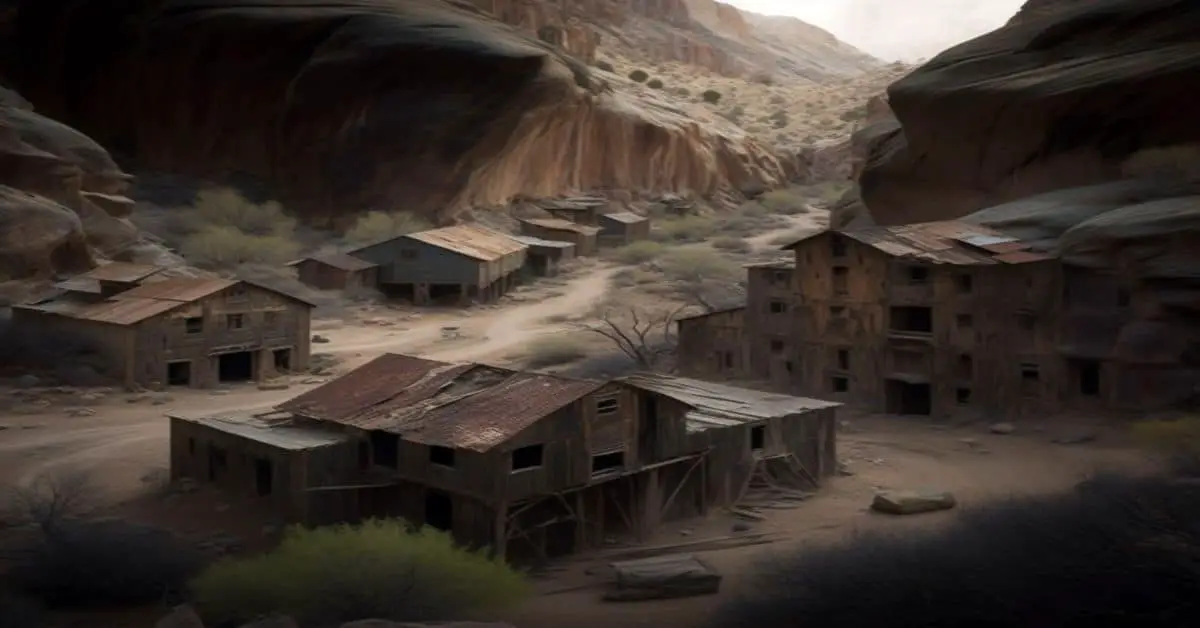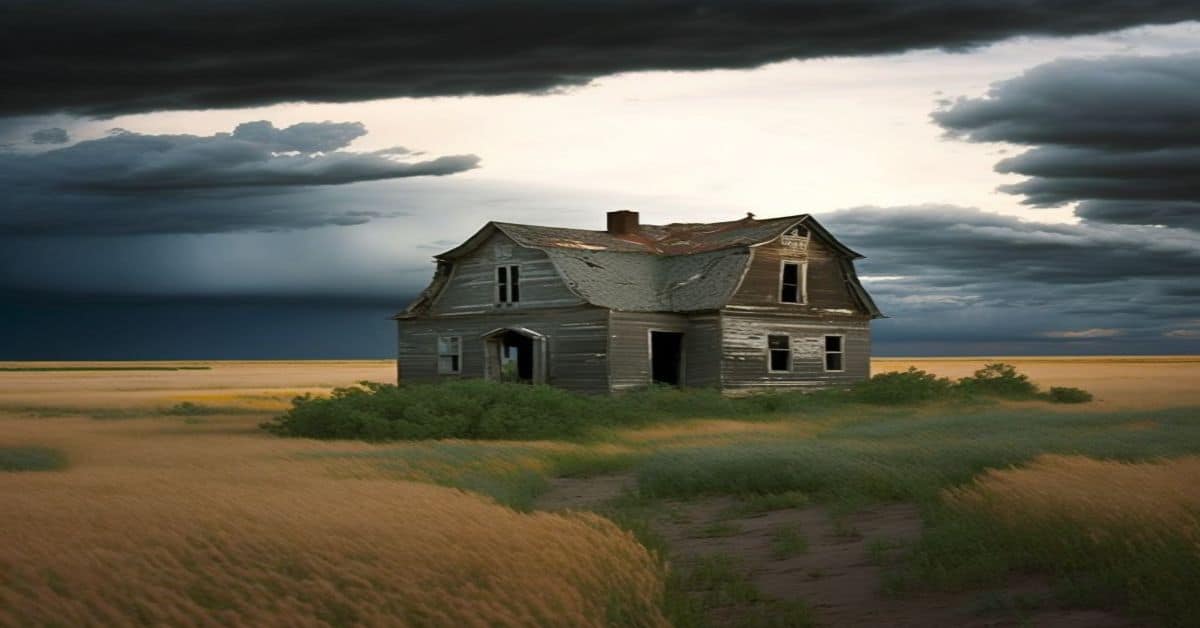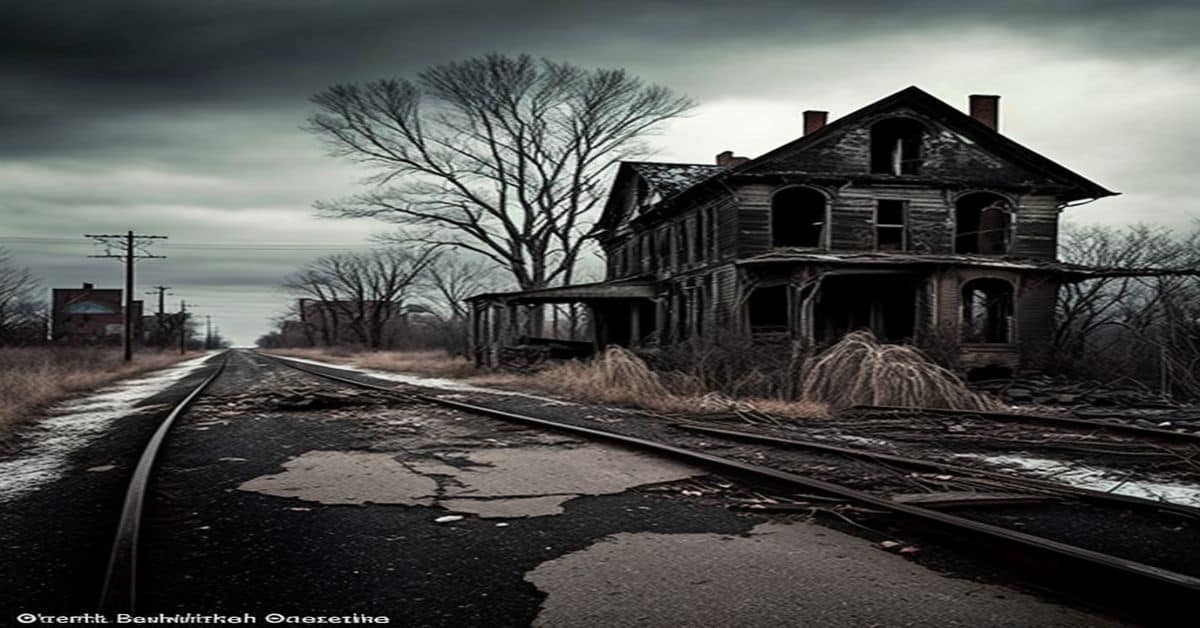Orla, a small town in Texas, was once a thriving oil industry hub. Its history is deeply intertwined with the oil industry boom in the early 20th century.
However, in recent years, the town has become a ghost town on life support. The survival of Orla is now dependent on the oil companies that still operate there, but even they cannot save the town from disappearing completely.
Red Bluff, a nearby lake, supports the precarious existence of Orla. Despite its challenges, the town still retains its identity and history.
In this article, we will explore Orla’s history and current status, and examine the factors that are keeping the town on life support. From its oil boom days to its current status as a ghost town, Orla’s story reminds of small towns’ fragility and challenges in the modern world.
Key Takeaways
- Orla’s history is closely tied to the oil industry, which brought rapid development to the town in the early 20th century.
- The town’s survival depends heavily on the oil industry and the nearby lake, which poses significant environmental risks to the community.
- Orla’s future prospects remain uncertain as the oil industry is subject to market fluctuations, and the town’s survival depends on community efforts and exploring alternative sources of support and economic development.
- The efforts of the people of Orla are a testament to the resilience of small communities in remote areas, and the cultural and historical significance of the oil industry in Orla remains apparent to this day.
History and Oil Boom
Orla’s history is closely tied to the oil industry, as the town was brought to life by the oil boom. The discovery of oil in the area in the early 20th century sparked a rapid development of the town. The oil industry impact on Orla was significant, leading to an influx of people and businesses. The town quickly became a hub for oil exploration, extraction, and transportation.
The cultural significance of the oil industry in Orla cannot be overstated. The industry brought people from all over the country to the town, mixing cultures and traditions. The local economy relied heavily on the industry, and many residents found work in the oil fields.
However, as the oil boom subsided, the town’s fortunes began to decline, and the industry’s impact on the town waned. Despite this, the cultural and historical significance of the oil industry in Orla remains apparent to this day.
Survival Challenges
The precariousness of Orla’s existence is evident in the fact that its survival is heavily dependent on the oil industry and the nearby lake. Without these factors, the town would almost certainly disintegrate like sand in the wind.
While the oil industry provides employment opportunities and financial stability to the residents of Orla, it also poses significant challenges to the community’s survival. The following are some of the challenges faced by Orla:
- Environmental hazards: The oil industry poses significant environmental risks to the community, including air and water pollution, which can have long-term health impacts on the residents.
- Economic instability: The town’s economy relies heavily on the oil industry, which is subject to market fluctuations. This instability can result in job losses and financial insecurity for the residents of Orla.
- Social isolation: Orla is a remote community with few amenities and limited access to healthcare and education. This social isolation can result in a lack of community support and limited personal and professional growth opportunities.
Despite these challenges, Orla’s future prospects remain uncertain. While the town’s survival is currently tied to the oil industry and the nearby lake, there is no guarantee that these factors will remain stable in the long term. As such, it is essential for the community to explore alternative sources of support and economic development to ensure its continued existence.
Current Status
The survival of Orla, a Texas ghost town, is heavily dependent on the stability of the oil industry and the nearby lake. The town’s history is tied to the oil industry, and its current survival is precarious. The oil companies working in Orla help keep the town from disappearing completely, but the town’s future is uncertain as the oil industry can be unpredictable.
Red Bluff, a nearby lake, also plays a role in Orla’s survival by preventing the town from being blown away by the wind.
In addition to the oil industry and the lake, the survival of Orla also depends on community efforts. While the town may be considered a ghost town, there are still people living there who are working to keep the community alive. The local economy may be limited, but those who live in Orla continue to support each other and work together to make the best of their situation.
Despite the challenges, the people of Orla are determined to keep their town alive, and their efforts are a testament to the resilience of small communities in remote areas.
Frequently Asked Questions
Are there any notable landmarks or buildings still standing in Orla?
Despite its status as a ghost town, Orla still has a few historic buildings, including the Orla Schoolhouse and the Orla General Store. However, the town offers limited tourism opportunities.
What is the population of Orla, and has it changed over time?
Population trends and demographic makeup of Orla are not available. However, the town is considered a ghost town, suggesting a significant population decline over time.
What kind of jobs are available in Orla besides those in the oil industry?
There is a lack of jobs outside of the oil industry in Orla, Texas. However, the town does offer tourism opportunities such as visiting Red Bluff Lake. Community gardens are also present, providing a space for locals to grow their own produce.
Has Orla experienced any natural disasters or environmental issues?
No information is available regarding natural disasters or environmental impact in Orla, Texas. The town’s survival depends on the oil industry and Red Bluff, a nearby lake, as it is on life support.
Are there any plans or initiatives in place to revitalize the town and attract new residents?
Efforts to revitalize Orla are limited, with no government support mentioned. The town’s survival is precarious, with dependence on the oil industry and Red Bluff Lake. Orla remains a ghost town, struggling to attract new residents.


